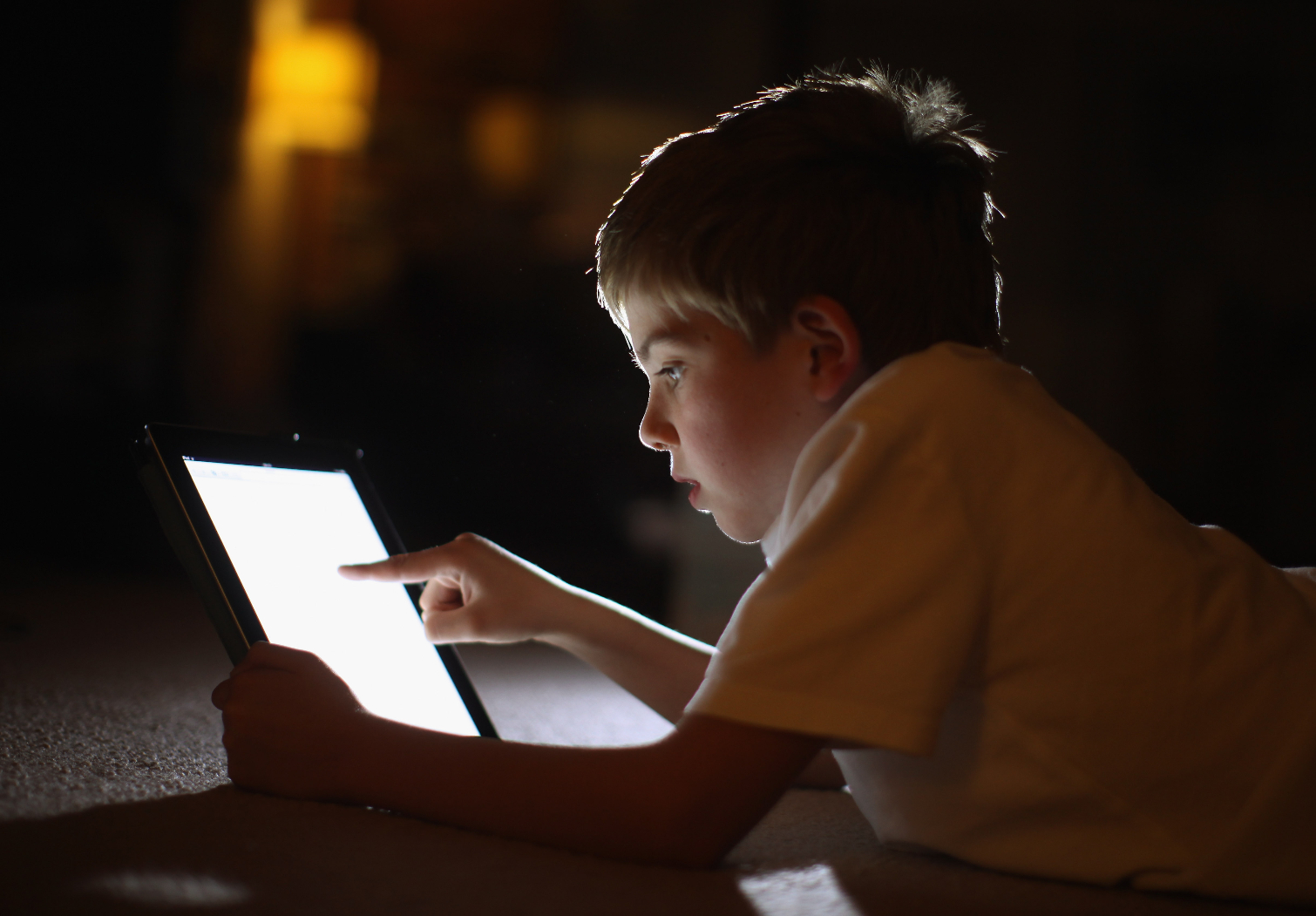Touchscreens May Be Hurting Your Kids' Sleep
A new study shows that touchscreen use by children directly translates to less sleep, as well as an increase in the number of times kids wake up during the night.
Touch screen devices could be keeping kids from getting as much sleep as they should be getting, recent research suggests.

In a survey involving 715 families based in the U.K., 75 percent of toddlers use a touch screen device daily, and it could have a direct impact on how long it takes them to get them to sleep and how frequently they wake up at night. The survey was conducted online between June 2015 and March 2016 and published in the journal Nature in mid-April.
As part of the survey, parents reported on how long their kids sleep during the day and night, how long it takes them to fall asleep, and how often they wake up at night. Every hour of touchscreen use seems to have reduced total daily sleep by 15.6 minutes, with kids getting 26.4 minutes less sleep at night and 10.8 minutes more during the day, on average, the survey found. There was no clear association between hours using touch screens and the number of times a kid woke up at night, however.
Every hour of touchscreen use seems to have reduced total daily sleep by 15.6 minutes, with kids getting 26.4 minutes less sleep at night.
Researchers have discouraged keeping touch screen devices out of childrens' rooms, because they can seek them out when they wake up at night, keeping them awake, and the blue light emanating from the screens can suppress their levels of melatonin, a naturally-occuring chemical that promotes sleep.
MORE: Best Parental-Control Apps
A look at several studies on kids' sleep shows that screen time is consistently linked with with shorter total sleep time and delayed bedtime, researchers said. Poor sleep in general can impact a kid's overall development, but there's limited research into the problem, they admitted.
Until last year, the American Association of Pediatrics discouraged screen time at all for kids younger than 2, but it took back that advice late last year, saying children younger than 18 months can benefit from educational content, but shouldn't have more than an hour's worth of screen time, and parents should limit the amount of time that older kids spend in from of a screen as well.
The National Sleep Foundation has also said that adults are also impacting how long and how well they sleep by keeping their phones in or close to their beds as well.
- Why Parents Should Pick Android Over iPhone
- Best Kid Tracker - GPS Devices for Locating Your Child
- New Lego-Compatible Blocks Teach Kids to Code
Get instant access to breaking news, the hottest reviews, great deals and helpful tips.
Althea Chang is Associate Director of Content Development for Consumer Reports and was previously a Senior Writer for Tom's Guide, covering mobile devices, health and fitness gadgets and car tech.
-
ajack46 Quite a revelation. Kids these days have so much access to gadgets and touch devices. Parents need to give their kids gadgets with responsibility.Reply
 Club Benefits
Club Benefits





